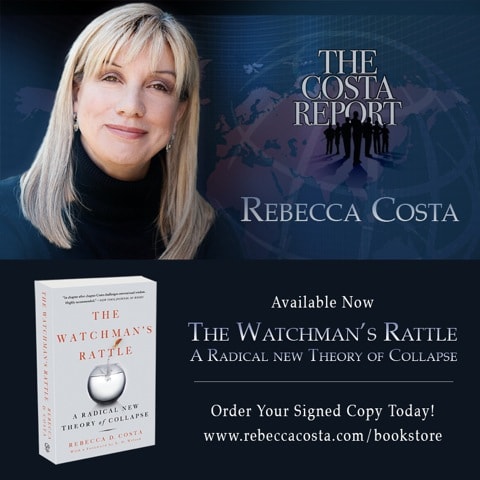The court of public opinion is officially in session. Soon, the country will choose sides. Those who want Dzhokhar Tsarnaev to pay for the bombing in Boston with his life. Those who hope the government will work out a plea deal and spare us another O. J. Simpson spectacle. And those who test the outer limits of our humanity by daring to urge compassion.
If you have never asked for forgiveness, then redemption is off the table. Itâs the stuff movie-makers and writers fantasize about: a vampire is saved by the love of a good woman, a cheat learns his lesson from a child, a drunk hits rock bottom and sees the light. We cheer the fallen priest, the lousy father, the ruthless boxer and sea captain as they fight their way back from the dark side.
The trouble is, we donât believe in redemption any more. Not even if youâre nineteen and have seventy years ahead of you.
We used to. But these days redemption is for chumps. Just look at the recidivism rates for burglary â a crime far less heinous than murder. Within 3 years of conviction, nearly 70 percent are re-arrested. If we donât know how to reform a common thief, is it any wonder we think an Islamic radical has about as much chance of being rehabilitated as a child molester.
But is this really true?
Recently, Dr. Anne Speckhard, weighed in on the Tsarnaev brothers. Sheâs the terrorism expert from Georgetown University Medical Center responsible for the design of the Defense Departmentâs Detainee Rehabilitation Program in Iraq. Speckhard spent thousands of hours interviewing 400 violent terrorists in Russia, Iraq, Yemen, Morocco. And what did she find? The soil has to be prepared in a specific way for radicalization to take root. The key ingredient appears to be âvulnerability.â Perpetrators like Tamerlan and Dzhokhar Tsarnaev have a need for acceptance, validation, and mission long before radical Islamic predators arrive on the scene. From this vantage point, the process of turning young boys into terrorists looks a lot like Johns staking out bus stations for runaways.
What is it predators know that, we – who no longer believe in redemption – have forgotten? They understand human nature. They recognize that – dating back to prehistoric times – Homo Sapiens were designed to be troupe-dwelling organisms. Similar to wolves which hunt in packs and swallows that nest together, we rely on each other for protection, sustenance, companionship and a sense of belonging and meaning. We may walk around with cell phones, drive automobiles, and send satellites into outer space today, but that âs done little to diminish our need for affiliation.
Sometimes that need is satisfied by our family, the Boy Scouts, the company we work for, or an online chat room. Sometimes itâs a cult, a violent gang, or a group of fellow hackers. And sometimes the need is so compelling that we join with our captors – as in the case of Patty Hearst – or act out in unthinkable ways – such as the perpetrators of genocide in Germany, Serbia, and more recently, Syria.
Our closest living relatives, the Bonobo monkeys – with whom humans share 95 percent of the same DNA â reveal a lot about how important membership is. In nature, expulsion from the troupe is a sentence as lethal as capital punishment. Without the groupâs protection and resources – a single Bonobo is a dead Bonobo.
Left up to the DNA we share with Bonobos, we will do the same. Sentencing a teenager to death is all the evidence we need to prove that we have succumbed to the lower instruments of our genetic inheritance. But if we are choosing to go natureâs route, keep in mind that deformed infants, the aged, the slow and incapable, present a threat to the troupeâs survival a well.
Which begs the question: just how far are we prepared to go?
If natureâs example doesnât sound so appealing, then consider the alternative: we may be working with a 5 percent difference in DNA from our nearest relative, but the long haul of human evolution has allowed us to tame our savage instincts. More than any other creature on the Earth, humankind has been blessed with the ability to choose reason over blood thirst, compassion over cruelty, resiliency over condemnation.
In other words, there is an alternative. We could fight fire with fire. Use the same tactics predators use to turn children into murderers to turn them back again.
The central coast of California presents a good example of predatory practices in reverse. Here, law enforcement is outgunned and outnumbered by Hispanic gangs that are now recruiting 11 year-olds. This once sleepy agricultural community is now credited with the highest homicide rate in the state and 5th highest in the nation.
But today, Boys and Girls Club buses line up outside school doors to transport children to secure facilities where they are embraced by a different kind of gang â one which does their homework together, plays sports, feeds and cares for the guinea pigs in the science room, and is not allowed to throw their trash on the floor. One that sends every child willing to work for it to college on a scholarship. One that turns societyâs most vulnerable into collaborators and contributors. Is the Boys and Girls Club predatory? You bet they are. And so is are the Big Brothers and Big Sisters, and Police Athletic Leagues and Boys and Girls Scouts and every other organization which taps our primal need for troupe.
Dzhokhar Tsarnaev is nineteen. He is not old enough to order a beer or rent a car.
Given a choice, will we join those who prey on our young by showing them the same disregard? Can a teenager who has committed an atrocity be forgiven? Redeemed?
And if not a nineteen year old, then who?
Rebecca Costa is a sociobiologist who offers a genetic explanation for current events, emerging trends and individual behavior. A thought-leader and provocative new voice in the mold of Thomas Friedman, Malcolm Gladwell and Jared Diamond, Costa is the foremost expert in âFast Adaptationâ tracing everything from terrorism, debt, epidemic obesity and upheaval in the Middle East to evolutionary imperatives.
Retiring at the zenith of her career in Silicon Valley, Costa spent six years researching and writing The Watchmanâs Rattle: Thinking Our Way Out of Extinction. In her book, Costa explains how the principles governing evolution cause and provide a solution for global gridlock. When asked why the book has special significance today, Costa claims, âEvery person I know, wants to know why our government gets more in debt, our air and water more polluted, our jails more crowded, our security more tenuous and our children more violent. We seem to have lost our ability to solve our problems. The Watchmanâs Rattle offers a genetic explanation for our paralysis, and prescribes a way out.â
The success of Rebecca Costaâs first book led to a weekly radio program in 2010 called The Costa Report onVoiceAmerica.com. The Costa Report is currently one of the fastest growing radio programs on the West Coast.






